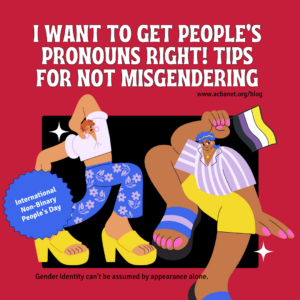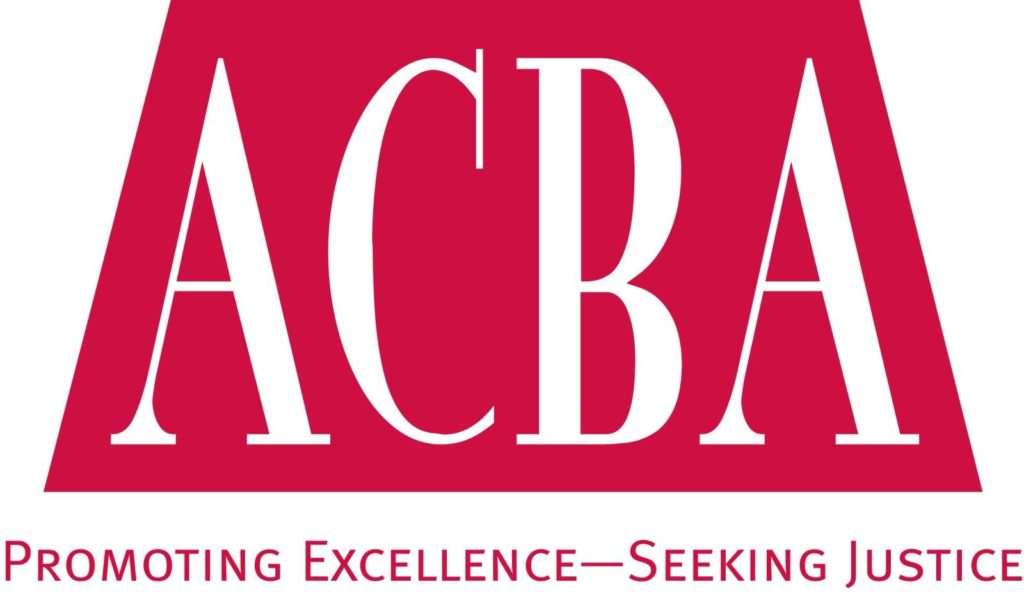Respecting Gender Identity: Practical Tips to Honor Pronouns and Avoid Misgendering
Adapted from a presentation given to Congregation Sha’ar Zahav
 Inclusivity and respect for diversity have become paramount in all aspects of life, especially in the legal profession. As legal practitioners, lawyers bear the responsibility of upholding justice while ensuring that everyone, regardless of their gender identity, feels seen, heard, and respected within the legal system. One crucial aspect of achieving this inclusivity is mastering the art of gender-inclusive language, which goes beyond pronouns and extends to every facet of legal communication.
Inclusivity and respect for diversity have become paramount in all aspects of life, especially in the legal profession. As legal practitioners, lawyers bear the responsibility of upholding justice while ensuring that everyone, regardless of their gender identity, feels seen, heard, and respected within the legal system. One crucial aspect of achieving this inclusivity is mastering the art of gender-inclusive language, which goes beyond pronouns and extends to every facet of legal communication.
Misgendering occurs when someone is referred to using language that does not align with their gender identity. Whether intentional or unintentional, misgendering can undermine the trust and confidence of individuals, perpetuate discrimination, and create unnecessary barriers within the legal system. Recognizing this, lawyers must strive to incorporate gender-inclusive practices into their professional lives to foster a more inclusive legal environment for all.
In this blog post, we will explore practical tips and strategies to help lawyers avoid misgendering individuals within their legal practices. As we learn, we are probably going to mess up, but that doesn’t mean we quit trying to get it right. The first step is to decide you WANT to get this right. That will go a long way. Some mistakes are due to our brains not really wanting to make this shift.
First, we want to aknowledge that this is hard. Our brains take in so much information and have to make connections and assumptions constantly-so the pronoun mistakes we make are the result of a lifetime of ingrained patterns. But practicing will create new neural pathways in your brain and it will become easier.
- Write your own pronouns with your name when you’re on zoom if you’re comfortable doing so. In person, use the pronoun stickers by the door to adorn your nametag. Not only does it help others and let others know it’s a safe space, it will make you more attentive to others’ pronouns.
- Zoom meetings are a great time to learn people’s pronouns because they are right there by their names. Make a list for yourself so you can review it later or before a meeting.
- What do you do to remember a new acquaintance’s name? Do that for their pronouns.
- Practice talking about them aloud to hear yourself say it correctly. If someone uses no pronouns (only their name), practice that.
- Avoid using “she/he” in your writing; instead use they/themself/themselves to get used to communicating in a less binary manner.
- Practice making statements without gender for everyone. Rather than, “Mychal has her hand raised,” try, “Mychal has a hand raised,” “Mychal has raised their hand,” or “Mychal has raised a hand.” Meet a baby? Ask how old ‘they’ are.
- Don’t assume pronouns. Use ‘they’ as your default when referring to people you don’t yet know well enough to know their pronouns.
- Try using “folks” and “y’all” instead of gendered plural pronouns like “you guys.”
- “May I ask what pronouns you use?” Don’t ask which they prefer. This isn’t a preference; it’s who they are.
- If you mess up, quickly and easily say “thank you” or “I’m sorry,” and move on. If you overexplain, you’re inadvertently asking them to take care of you and make you feel everything’s ok, when it was YOUR mistake. Any explanation you give is going to sound hollow-just apologize sincerely, and move on to getting better at it.
- If you have a linguistic problem or grammatical curiosity, don’t bring that up when talking to someone who uses that pronoun or usage. Explore that curiosity elsewhere. By the way, according to Merriam-Webster, “they” has been in consistent use as a singular pronoun since the late 1300’s.
- If you are a committee chair, model saying people’s pronouns correctly so others hear you.
- If you mess up someone’s pronouns when they are not present, you will very likely mess them up when they are. Our brains can’t switch on and off that way—you’re forming new neural pathways every time you say it correctly. So practice it correctly and you’ll say it correctly when it counts.
- Very kindly correct each other when you hear someone’s incorrect pronouns used, and not get hurt when corrected.
- Let’s also be compassionate. Each of our brains work in different ways and pronouns are very difficult (or impossible) for some, despite their intentions.
Looking to get involved more with the ACBA to practice these tips for not misgendering clients or colleagues? Join an executive committee for one of our practice area sections, or come to a networking event!
Resources:
A gorgeous presentation on how various global languages are innovating
Here is a list of LGBTQI terminology
